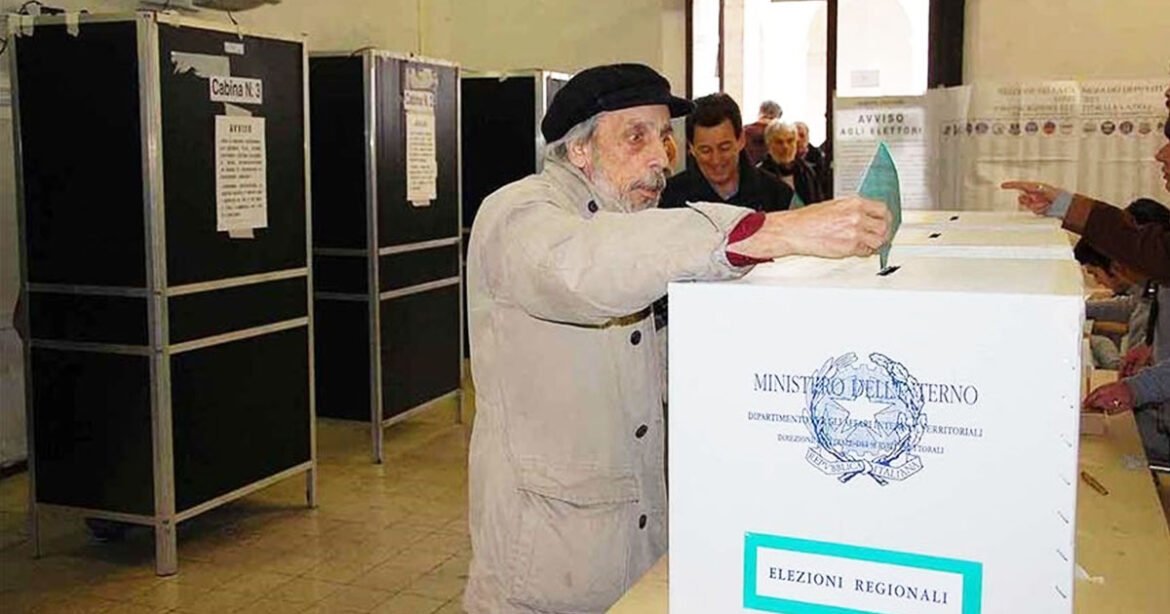People in Italy started voting in an election on Sunday that is expected to lead to the first far-right government in the country since the World War II. If voted to power, it would bring Euroskeptic populists to Europe’s heart.
Giorgia Meloni, the leader of the Brothers of Italy party and former Mussolini supporter, is now leading the election polls and is likely to form a government with Silvio Berlusconi’s Forza Italia and the far-right League. The sudden election was brought on as the coalition of former Prime Minister Mario Draghi fell apart in July. Recent research indicates that about a quarter of voters support Meloni with The Brothers of Italy growing in popularity.
YOU CAN ALSO READ: FAIR POLLS, ELECTION COMMISSION’S OPTIMUM ROLE AND EVM USE
The polling is open until 23:00 (21:00 GMT). About 51 million Italians can cast their ballots; 2.6 million of them are first-time voters, and another 4.7 million are living and working abroad. Sergio Mattarella, the president of Italy has voted early in Palermo, the city of Sicily.
Ms. Meloni, 45, is running for prime minister of Italy and has emphasized “God, country, and family” throughout her campaign. She has modified her image, and she doesn’t like being associated with Italy’s fascist past. She supports Western sanctions against Russia and has softened her stance toward Europe. However, she continues to support the old perspective and has advocated for a naval blockade of Libya to stop immigration as well as spoken out against the “LGBT lobby.”
In the most recent elections in 2018, Brothers of Italy, which has roots in the post-fascist movement started by admirers of the dictator Benito Mussolini, received merely 4% of the vote. Over the years, Ms. Meloni has changed her mind, most notably giving up her calls for Italy to leave the euro.
Voters were reportedly in line at polling places early in the morning, before they even opened, according to Agence France-Presse (AFP). The Teneo consultancy’s Mr. Wolfango Piccoli told AFP that Ms. Meloni is “the novelty, the only leader the Italians have not yet tried.” Brussels and the markets are paying close attention because they are worried that Italy, a founder member of the European Union, could be the next country to move to the far right, just two weeks after the far right did well in Swedish elections.
The third-largest economy in the Eurozone (Italy) has recovered from the pandemic, but it is still burdened with enormous debt, equal to 150% of its GDP. If she succeeds, Ms. Meloni will have to deal with issues like rising inflation and a wintertime energy crisis related to the situation in Ukraine.
Her remarkable rise in popularity reflects Italy’s longtime animosity to traditional politics, which has most recently been demonstrated by the nation’s backing of anti-establishment groups like the Five Star Movement and Matteo Salvini’s League.
As the country is in huge debt, the EU agreed to provide Italy with eye-watering grants and loans totaling €200 billion (£178 billion) as part of the post-Covid recovery effort, but only if Mario Draghi’s departing unity government accepts certain measures. Giorgia Meloni has urged a revision of the plan and stated that more needs to be done to “protect” Italy’s national interests within the EU. For this reason, the voting matters to Europe.
The Chamber and the Senate are the two houses of parliament that the Italian people elect. The Chamber now has 400 seats and the Senate has 200 seats. When combined with Italy’s mixed voting system, that is probably going to help the winning alliance the most. In Italy, more than 60% of seats are decided through proportional representation, while more than a third is decided by first-past-the-post elections similar to those in the UK.
According to Italian commentators, any combination that receives 40% of the vote could secure up to 60% of the seats. The right-wing alliance in particular is keeping a close eye on the new system since they require the support of two-thirds of the house to implement one of its core agendas.


